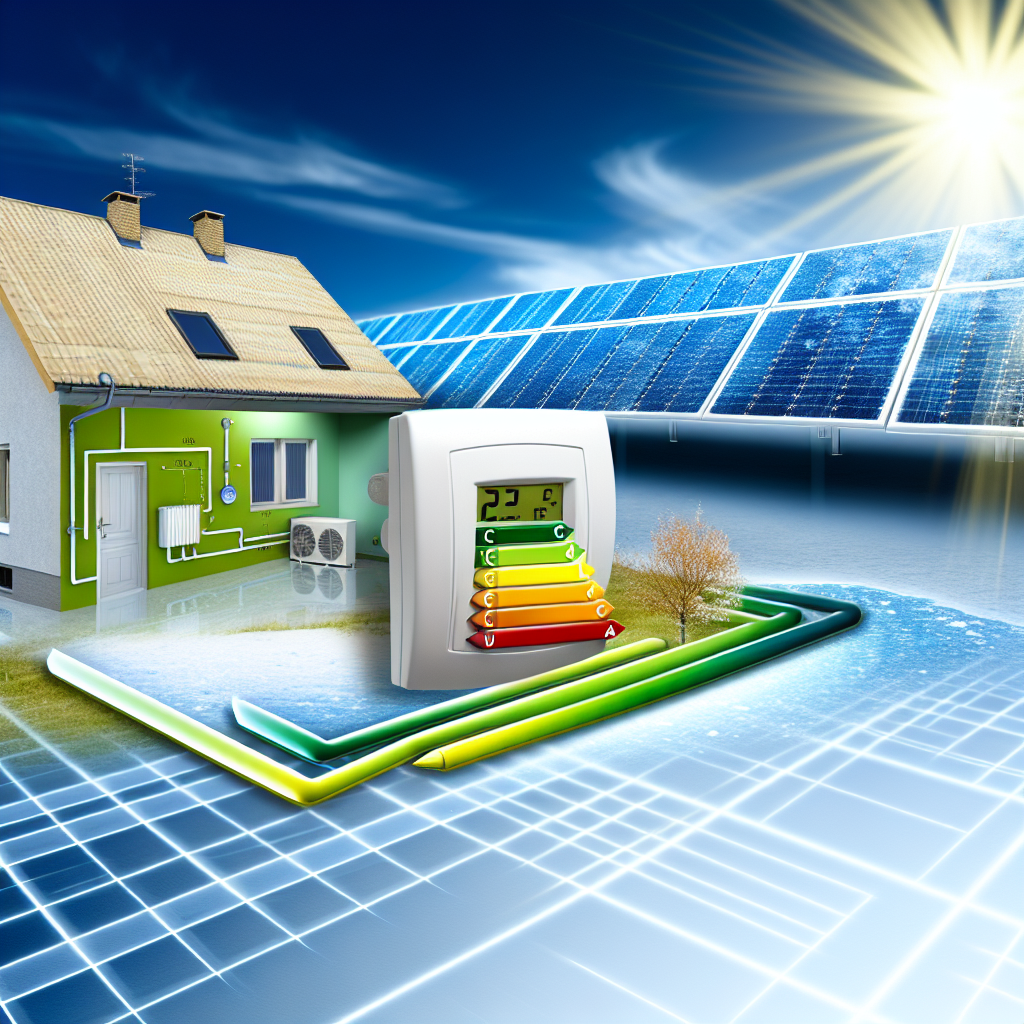Published: Oct 19, 2024

Heating and cooling your home accounts for a significant portion of your energy bills throughout the year. By implementing energy-saving strategies, you can not only reduce your utility costs but also contribute to a more sustainable environment. In this blog post, we will discuss some of the top strategies to help you save energy when it comes to heating and cooling your home.
One of the most important aspects of saving energy in your home is ensuring that it is properly insulated. Good insulation helps to keep heat inside during the winter and outside during the summer, reducing the workload on your heating and cooling systems. Check the insulation in your attic, walls, and floors to make sure it is adequate and consider upgrading to more energy-efficient materials if needed.
Installing a programmable thermostat is a simple yet effective way to save energy and money on your heating and cooling bills. Program the thermostat to adjust the temperature based on your schedule, allowing you to lower the heat or raise the air conditioning when you are not home. This way, you are not wasting energy on heating or cooling an empty house.
Regular maintenance of your heating and cooling systems is essential for optimal energy efficiency. Ensure that your HVAC equipment is serviced at least once a year by a professional technician to keep it running smoothly. Dirty filters, clogged ducts, and worn-out parts can all contribute to higher energy consumption and reduced efficiency.
When it comes time to replace your heating or cooling system, opt for energy-efficient models. Look for systems that have a high energy efficiency rating, such as ENERGY STAR certified products. While these systems may have a higher upfront cost, they will save you money in the long run through lower energy bills.
Air leaks around windows, doors, and ductwork can significantly impact the efficiency of your heating and cooling systems. Seal any gaps or cracks with caulk or weatherstripping to prevent conditioned air from escaping and outside air from entering. This simple step can make a big difference in your home's energy consumption.
Ceiling fans can help distribute air more evenly throughout your home, reducing the strain on your heating and cooling systems. During the winter, set your fans to rotate clockwise at a low speed to push warm air down from the ceiling. In the summer, run the fans counterclockwise to create a cooling breeze.
If you have areas in your home that are not frequently used, consider implementing zone heating and cooling. This allows you to heat or cool specific zones of your home independently, optimizing energy usage based on your needs. By only conditioning the spaces you are using, you can save energy and improve comfort.
Take advantage of natural sunlight to help heat your home during the winter months. Open curtains and blinds during the day to allow the sun's warmth to enter your home. In the summer, use window coverings to block out direct sunlight and reduce the load on your cooling system.
Maintaining proper humidity levels in your home can help it feel more comfortable at lower temperatures. By using a humidifier in the winter, you can add moisture to the air, allowing you to lower the thermostat slightly without sacrificing comfort. This can lead to energy savings without compromising on warmth.
Finally, take the time to educate yourself on best practices for energy efficiency in your home. Simple habits like turning off lights when not in use, unplugging electronics, and using energy-saving settings on appliances can all add up to significant savings over time. By being mindful of your energy usage, you can make a positive impact on both your wallet and the environment.
In conclusion, by implementing these top energy-saving strategies for your home's heating and cooling, you can reduce your energy bills, increase your comfort, and contribute to a greener planet. Making small changes and investing in energy-efficient upgrades can pay off in the long run, both financially and environmentally.
**

Our expert technicians are ready to assist you 24/7!
Contact Us Today!Read our latest articles for helpful information about heating, cooling, and air quality.
Regular HVAC maintenance is essential for improving energy efficiency, extending the lifespan of your system, enhancing...
Read MoreImplement these 10 tips to enhance the air quality in your home, promoting a healthier living environment for you and y...
Read MoreRegular seasonal HVAC maintenance is essential for maximizing system efficiency, ensuring indoor air quality, preventing...
Read MoreSmart thermostats offer energy savings, convenience, learning capabilities, and integration with smart home systems, mak...
Read More